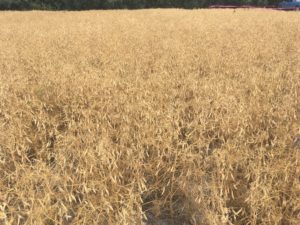Grain Pea Production in North Carolina
go.ncsu.edu/readext?732924
en Español / em Português
El inglés es el idioma de control de esta página. En la medida en que haya algún conflicto entre la traducción al inglés y la traducción, el inglés prevalece.
Al hacer clic en el enlace de traducción se activa un servicio de traducción gratuito para convertir la página al español. Al igual que con cualquier traducción por Internet, la conversión no es sensible al contexto y puede que no traduzca el texto en su significado original. NC State Extension no garantiza la exactitud del texto traducido. Por favor, tenga en cuenta que algunas aplicaciones y/o servicios pueden no funcionar como se espera cuando se traducen.
Português
Inglês é o idioma de controle desta página. Na medida que haja algum conflito entre o texto original em Inglês e a tradução, o Inglês prevalece.
Ao clicar no link de tradução, um serviço gratuito de tradução será ativado para converter a página para o Português. Como em qualquer tradução pela internet, a conversão não é sensivel ao contexto e pode não ocorrer a tradução para o significado orginal. O serviço de Extensão da Carolina do Norte (NC State Extension) não garante a exatidão do texto traduzido. Por favor, observe que algumas funções ou serviços podem não funcionar como esperado após a tradução.
English
English is the controlling language of this page. To the extent there is any conflict between the English text and the translation, English controls.
Clicking on the translation link activates a free translation service to convert the page to Spanish. As with any Internet translation, the conversion is not context-sensitive and may not translate the text to its original meaning. NC State Extension does not guarantee the accuracy of the translated text. Please note that some applications and/or services may not function as expected when translated.
Collapse ▲Grain peas are a legume, like soybeans, that can be produced in North Carolina over the winter months with harvest timing slightly prior to wheat. Grain peas are high in protein and low in trypsin inhibitors and therefore do not require heat treatment when used as animal feed. Multiple buyers in the Southeast are interested in grain peas for inclusion in traditional animal feed, grain-free dog food, and food-grade end markets. If stable markets emerge, we want our growers to already have the foundational agronomic information necessary to grow this crop successfully.
The resources below provide production information on producing this crop in North Carolina based on the Golden Leaf funded research we have been conducting over the past several years in North Carolina.
A webinar was hosted on September 18, 2020, to discuss grain pea production in North Carolina and a recording of the webinar is available.
The videos were developed by Jenny Carleo, Area Specialized Grain Agent, and feature both the researcher and grower (Adrian Locklear, Maxton, NC) perspective on producing this crop in North Carolina.
Video: Introduction to Growing Grain Peas in North Carolina
Video: Agronomics of Growing Grain Peas in North Carolina
This Extension Publication has production recommendations, research results, and variety trial data.



